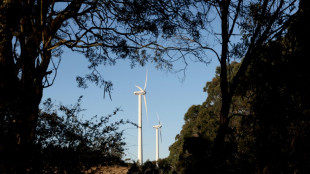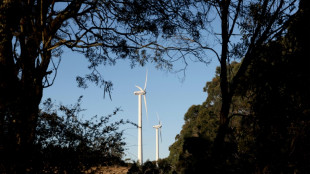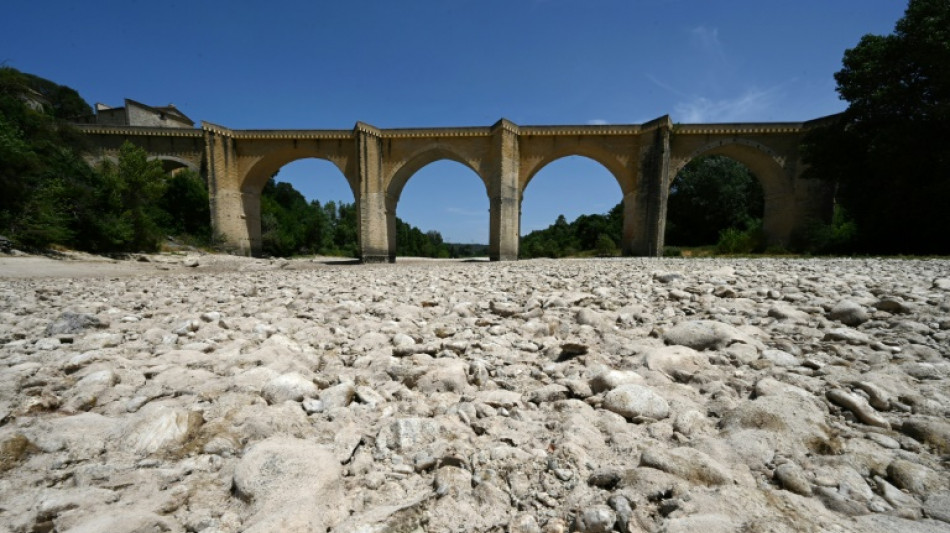
-
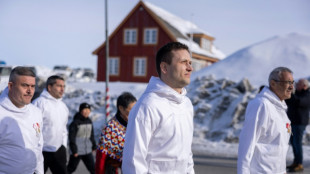 Greenland PM visits Denmark as Trump threats loom
Greenland PM visits Denmark as Trump threats loom
-
Philippines, US test air defences as China seizes reef

-
 25 killed, fires still burning in huge Iran port blast
25 killed, fires still burning in huge Iran port blast
-
India and Pakistan troops exchange fire in Kashmir

-
 Eighteen killed, fires still burning in huge Iran port blast
Eighteen killed, fires still burning in huge Iran port blast
-
No handshake at muted India-Pakistan border ceremony

-
 Maligned by Trump, White House reporters hold subdued annual gala
Maligned by Trump, White House reporters hold subdued annual gala
-
Austria trials DNA testing to uncover honey fraud

-
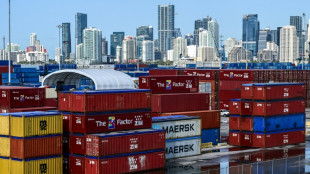 Trump trade war pushes firms to consider stockpiling
Trump trade war pushes firms to consider stockpiling
-
D'Backs' Suarez becomes 19th MLB player to hit four homers in one game

-
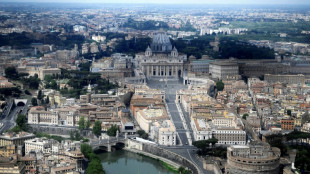 Continuity or rupture: what direction for the next pope?
Continuity or rupture: what direction for the next pope?
-
Surridge scores four as Nashville smash seven past Chicago

-
 Chinese tea hub branches into coffee as tastes change
Chinese tea hub branches into coffee as tastes change
-
Diplomacy likely to trump geography in choice of new pope

-
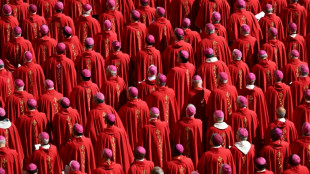 All eyes turn to conclave after Pope Francis's funeral
All eyes turn to conclave after Pope Francis's funeral
-
Doves, deaths and rations: Papal elections over time

-
 Progressive Canadians say social issues blown off election agenda
Progressive Canadians say social issues blown off election agenda
-
Liverpool primed for Premier League title party

-
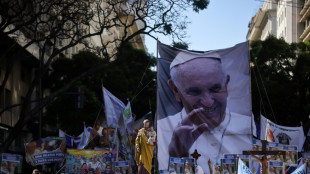 Buenos Aires bids farewell to Francis with tears, calls to action
Buenos Aires bids farewell to Francis with tears, calls to action
-
Thunder sweep past Grizzlies in NBA playoffs, Cavs on brink

-
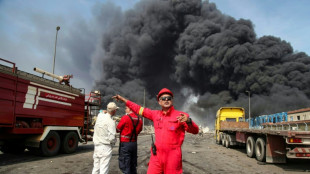 Major blast at Iran port kills 14, injures 750
Major blast at Iran port kills 14, injures 750
-
'What we live for': Kounde after winning Barca Copa del Rey final

-
 More McIlroy magic at PGA pairs event but Novak and Griffin lead
More McIlroy magic at PGA pairs event but Novak and Griffin lead
-
Fire rages after major blast at Iran port kills 14, injures 750
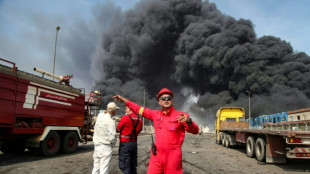
-
 Denkey wonder-strike keeps Cincinnati on track in MLS
Denkey wonder-strike keeps Cincinnati on track in MLS
-
Barca edge Real Madrid in extra-time to win wild Copa del Rey final

-
 'Legendary' Eubank Jr beats Benn in grudge bout
'Legendary' Eubank Jr beats Benn in grudge bout
-
Thunder sweep past Grizzlies into NBA playoffs 2nd round, Cavs on brink

-
 South Korea's Ryu and Japan's Saigo share LPGA Chevron lead
South Korea's Ryu and Japan's Saigo share LPGA Chevron lead
-
Canada leaders make closing pitches in campaign upended by Trump

-
 De Bruyne's Man City exit 'so difficult' for Guardiola
De Bruyne's Man City exit 'so difficult' for Guardiola
-
'No regrets' for Amorim over Man Utd move

-
 Lyon and Strasbourg win to close in on Europe, Montpellier relegated from Ligue 1
Lyon and Strasbourg win to close in on Europe, Montpellier relegated from Ligue 1
-
Toulouse thrash Castres as Top 14 pursuers stumble

-
 Djokovic crashes to nervous Arnaldi in Madrid opener, Swiatek advances
Djokovic crashes to nervous Arnaldi in Madrid opener, Swiatek advances
-
Olympic champs Russell, Davis-Woodhall win at Drake Relays

-
 Browns end Sanders long draft slide
Browns end Sanders long draft slide
-
Cavs crush Heat, on brink of NBA playoff sweep

-
 Fire rages after major blast at Iran port kills 8, injures hundreds
Fire rages after major blast at Iran port kills 8, injures hundreds
-
Kiwi Beamish wins Penn Relays 1,500m crown with late kick

-
 Mbappe on Real Madrid bench for Clasico Copa del Rey final
Mbappe on Real Madrid bench for Clasico Copa del Rey final
-
England survive France fightback to seal Women's 6 Nations slam

-
 Palace sweep past Villa to reach FA Cup final
Palace sweep past Villa to reach FA Cup final
-
CAF appoint Moroccan Lekjaa first vice-president

-
 Major blast at Iran port kills 5, injures hundreds
Major blast at Iran port kills 5, injures hundreds
-
Rodgers vows to stay with Celtic after fourth successive Scottish title

-
 Ipswich relegated as Newcastle, Chelsea boost top five bids
Ipswich relegated as Newcastle, Chelsea boost top five bids
-
Canada leaders make final pitches in campaign upended by Trump

-
 Mullins -- Ireland's national training treasure
Mullins -- Ireland's national training treasure
-
US, Iran say progress in 'positive' nuclear talks


Climate change is slowing heat waves, prolonging misery
Climate change is causing heat waves to slow to a crawl, exposing humans to extreme temperatures for longer than ever before, a study published in Science Advances said Friday.
While previous research has found climate change is causing heat waves to become longer, more frequent and more intense, the new paper differed by treating heat waves as distinct weather patterns that move along air currents, just as storms do.
For every decade between 1979 to 2020, researchers found heat waves slowed down by an average of five miles (eight kilometers) an hour per day.
"If a heatwave is moving slower, that means heat can stay in a region longer, so that has effects on communities," senior author Wei Zhang of Utah State University told AFP.
The researchers divided the world into three dimensional-grid cells and defined heat waves as a million square kilometer zones where temperatures reached at least the 95th percentile of the local historical maximum temperature. They then measured their movement over time in order to determine how fast the hot air was moving.
They also used climate models to determine what the results would have looked like absent human-caused climate change, and found manmade factors loomed large.
"It's pretty clear to us that a dominant factor here to explain this trend is anthropogenic forcing, the greenhouse gas," said Zhang.
The changes have accelerated in particular since 1997 and in addition to human causes, weakening upper atmospheric air circulation may play a part, the paper said.
The duration of heat waves also increased, from an average of eight days at the start, to 12 days during the last five years of the study period.
"The results suggest that longer-traveling and slower-moving large contiguous heat waves will cause more devastating impacts on natural and societal systems in the future if GHG keep rising, and no effective mitigation measures are taken," the authors wrote.
Zhang said he was worried by the disproportionate impacts on less-developed regions.
"In particular, cities that don't have enough green infrastructure or not many cooling centers for some folks, in particular for the disadvantaged population, will be very dangerous," he warned.
la-ia/mdl
Ch.Havering--AMWN
